
YOUNG ENTREPRENEURSHIP AWARD 2015

YOUNG ENTREPRENEURSHIP AWARD 2015
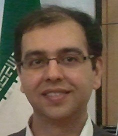 Mojtaba Radfar (Shole Aria Co, CEO, Iran)
Mojtaba Radfar (Shole Aria Co, CEO, Iran)
Aria E-book for Education
Mr. Mojtaba Radfar has developed a new system for e-learning by introducing cutting edge technology into the preparation of educational materials, and established a start-up company, Shole Aria Co. at Isfahan Science & Technology Town in Isfahan, Iran in 2010. The company has a contract with the Ministry of Education of Iran to develop versatile educational tools for all primary and secondary school students from 1st grade to seniors. The system involves the use of voice files and multimedia files, and enables teachers to prepare educational materials and multiple choice tests. Teachers can illustrate educational materials on an electronic blackboard, and prepare flash cards. Since the system can be used with PCs, tablets, and cellular phones, students can use the system at any places and any time. The system also has a networking function that allows interactive communication between teachers and students. The system makes learning interesting and fun for students, and 1.5 million students and 25 thousand teachers used the system last year. The Foundation highly evaluates Mr. Radfar’s efforts and contribution to the improvement of primary and secondary school education by developing the Aria E-book system.
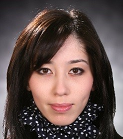 Asilkhodjaeva Munisakhon (Apparel Designer, Uzbekistan)
Asilkhodjaeva Munisakhon (Apparel Designer, Uzbekistan)
Apparel Transformation
Ms. Asilkhodjayeva Munisakhon has been developing transformable apparel using traditional Uzbek fabrics and patterns. Her apparel can be transformed according to changes in season or changes in place by simply attaching or removing parts. Women don’t have to change their clothes in response to changes in the weather or changes in occasion, and can save time and money using transformable apparel. They can also enjoy a variety of styles from classic to casual. Ms. Asilkhodjayeva has converted her apartment into an office where she develops her transformable apparel with four staff members. She is also considering the mass production of her designed clothes. The Foundation evaluates her efforts of trying to enrich women’s everyday life by developing transformable apparel in Uzbekistan.
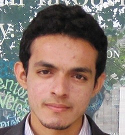 Gamal Albinsaid (Indonesia Medika CEO, Indonesia)
Gamal Albinsaid (Indonesia Medika CEO, Indonesia)
Garbage Clinical Insurance
Mr. Gamal Albinsaid has developed a program of micro health insurance, Garbage Clinical Insurance, GCI, which uses garbage as a financial resource to improve health care for low-income people in Indonesia. People sort waste materials such as cans, bottles, plastics and garbage, and take them to clinics, where the waste can be traded for health insurance payments. With this program, people can easily see doctors and receive primary treatment without paying in cash. The program started in 2009, and as of now, five clinics with 15 doctors,12 nurses and midwives, and 88 volunteers are involved in the program. About 2,500 members of the local community use the program. They take trash to clinics twice a week, and the program covers 20 % of the medical treatment they receive. A unique point of the program is combining waste collection earnings with health insurance. The program has been contributing to improving in health care, as well as improving the environment in local communities.
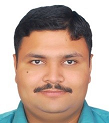 Muhammad Dawood Sheikh (Young Development Trust, Founder, Pakistan)
Muhammad Dawood Sheikh (Young Development Trust, Founder, Pakistan)
Skill for Peace
In 2008, Pakistan was in a chaotic condition, and suffered from terrorism and extremism. Many young people were unemployed, and some of them joined terrorist groups. Mr. Muhammad Dawood Sheikh thought it important to provide unemployed young people with stable jobs, and in August 2008, he and his friends established the Young Development Trust (YDT) in order to build a vocational training school in Gujranwala, a small town in Pakistan. The land for the vocational school was donated by a local business man, and construction has started with support from the local community and self-financing. The construction of the school will be completed in April, 2016. When completed, the school will provide 500 students with practical education suitable for local industries. YDT has already provided 6 young people with video technology training, and these young people have already started working for local companies and supporting their families. They also volunteer for YDT. With Mr. Muhammad Dawood Sheikh’s leadership and careful planning, YDT has gained support from the local community and started the construction of the school. The Foundation evaluates his endeavor of constructing a vocational school and providing young people with vocational training despite limited funds.
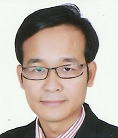 Song Saran (Amru Rice, CEO, Cambodia)
Song Saran (Amru Rice, CEO, Cambodia)
Amru Rice –Contract Farming for Sustainable Development
Cambodia has a vast amount of surplus rice, but lacks modern refining technologies, and so most of the surplus rice is exported to Vietnam as unmilled rice. In order to export high quality milled rice, it is necessary to integrate the collection, storage, and refining of rice. Mr. Song Saran inherited his grandfather’s milling company, and established Amru Rice in 2008. He started aggressive management by buying brand new milling machines, installing mills near rice fields, and introducing contract farming. Amru Rice has grown into one of the two biggest milled rice-exporting companies in Cambodia. They mill 100,000 tons of unpolished rice. They contract with 10,000 farmers through agricultural cooperatives in order to secure a long-term rice supply. The contracts also contribute to increasing the earnings of farmers. The company’s assets and equity have grown from 500,000US$ to 4,000,000US$ in 5 years. The company exports 50,000 tons of milled rice for 35 million US$. The Foundation evaluates the contribution of Amru Rice to the expansion of milled rice export by providing stable supply of value-added rice, including organic rice, and introducing contract farming, which is in turn contributing to increasing the earnings of farmers.
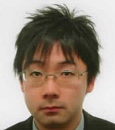 Tsuyoshi Takami (Osaka University, Associate Professor, Japan)
Tsuyoshi Takami (Osaka University, Associate Professor, Japan)
Development of New Hydrogen Storage Material
Mr. Tsuyoshi Takami has succeeded in preparing a new hydrogen storage material that has a storage capacity of 3.8 weight percent, the highest storage capacity at the present time. The material is a metal organic compound produced by the reaction of copper formate tetrahydrate with pyridine. The material is easily prepared at low cost. It reversibly absorbs and removes hydrogen, and does not generate much heat on absorption. He is collaborating with a company in an attempt to develop more effective compounds that store more than 5% weight percent of hydrogen, the value set by the US Department of Energy a target for onboard hydrogen storage material by 2018. The results of his research have been published in academic journals of the American Institute of Physics, and a patent has been applied for. His research could have a large impact on society if it leads to commercialization. The Foundation evaluates the possibilities of his research in the future.